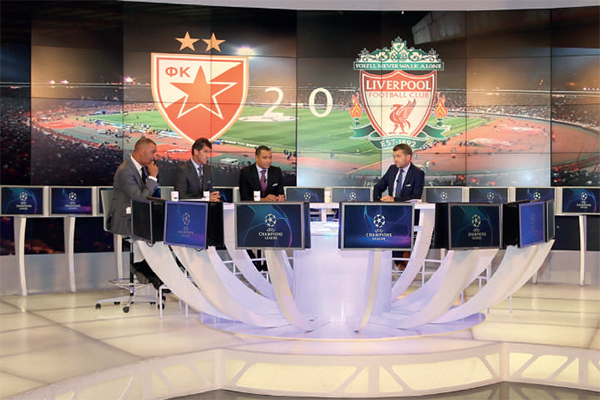“Rights values are going to drop off a cliff, and the very economic model of our industry is going to be re-written. Any rights-holders who think that the technology companies of the West Coast are their financial saviours are going to be swiftly disappointed. This is all because our industry took too long to take piracy seriously,” commented Al-Obaidly.
In a strongly-worded address at the recent Leaders Week Sport Business Summit in London, Yousef Al Obaidly, CEO of beIN Media Group, chastised rights owners for not taking strong action against piracy and warned that their silence will negatively impact future media rights valuations.
With the top 25 global broadcasts ever watched being sporting events and beIN having more than $15bn in sports investments, his address was a clear warning that beIN will re-evaluate its sports rights investment.
“As the largest buyer of sports rights in the world, because of beoutQ in MENA and piracy generally, we now regard all sports rights as non-exclusive and our commercial offers will reflect that. I am also confident that other broadcasters – of all shapes and sizes – will make similar devaluations, while many once-premium rights will remain unsold.”
He pointed out that while many organisations in the room had benefited financially – “federations, leagues, broadcasters, sponsors, clubs” and so on, “rights-holders in particular” were “sleepwalking towards a financial cliff”.
“The endless growth of sports rights is over,” he warned.
“Any rights-holders who think that the technology companies of the West Coast are their financial saviours are going to be disappointed. This is because our industry took too long to take piracy seriously.”
He decried the silence with which the industry has dealt with the “big elephant in the room”.
He called a recent forecast made by, Rethink TV, a British analyst, which reported that the total value of sports broadcasting rights is expected to reach $85bn in 2025, a 77% increase on today’s levels, “crazy” and “out of touch”.
“I simply don’t know where this money is going to come from! This is because every deal needs a combination of at least two bidders in a market, and a level of exclusivity in line with the investment made. And while sometimes there are headwinds outside our control, these two factors do not exist. We now live in a world where exclusive broadcast rights are, effectively, wholly non-exclusive.”
“If you don’t protect your intellectual property, you have nothing,” he pointed out.
He went on to add that last year, almost 190 billion visits were made to pirate sites.
“I am not only talking about Wild West regions – it is happening under your very noses. In the top ten most pirating markets, alongside Russia, Brazil and Indonesia sit the UK, Germany and France. Top of the list is the USA,” he pointed out.
He went on to add that in 2018, a BBC research showed that 50% of fans in the UK had accessed Premier League streams through unofficial providers; and a third of fans didn’t even know it was illegal.
“These are commercial revenues that are being shop-lifted every day, and shop-lifting is seen as acceptable behaviour by consumers. All the while, an illegal sports economy is funded, with organised criminals getting richer and grassroots development getting poorer.”
He called piracy “a collective problem” requiring “an industry-wide response”.
“First, anti-piracy staffing levels, capabilities and budgets should be your biggest priority. Second, there should be cross-party collaboration on major legal reforms, including the establishment of full copyright in broadcast signal. Third, CEOs of federations, leagues, clubs and broadcasters should all … be engaging their sports ministers and senior politicians on the same. Fourth, consumers should be educated through bold public awareness campaigns. They should know the direct implications of choosing a pirate service. Fifth, the pirates themselves should be shown that piracy cannot pay and they should be publicly prosecuted.”
He went on to add that “if you don’t get your house in order and quickly, the sports rights market will disintegrate beyond recognition.”
“The sports industry is at a critical juncture, and whether or not you respond in elevating anti-piracy from your backroom to your boardroom, will determine the very attendee list of this conference over the years to come,” he concluded.











































































